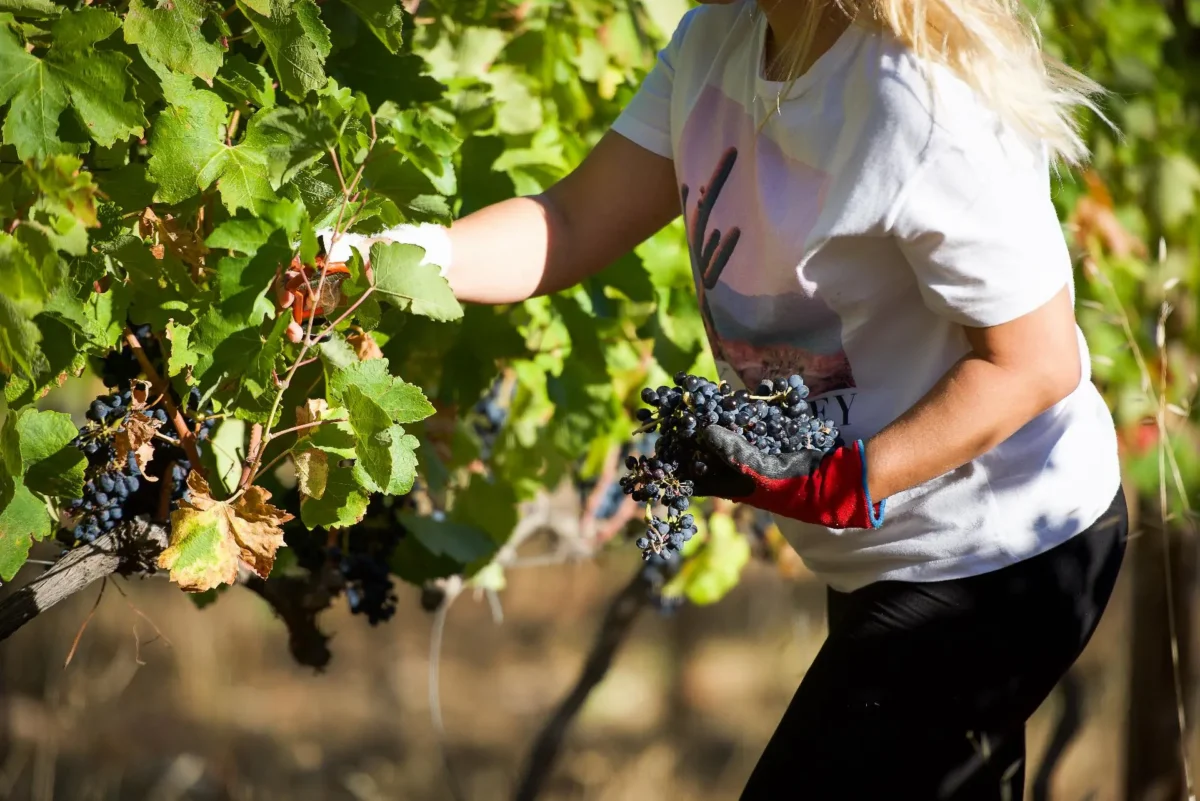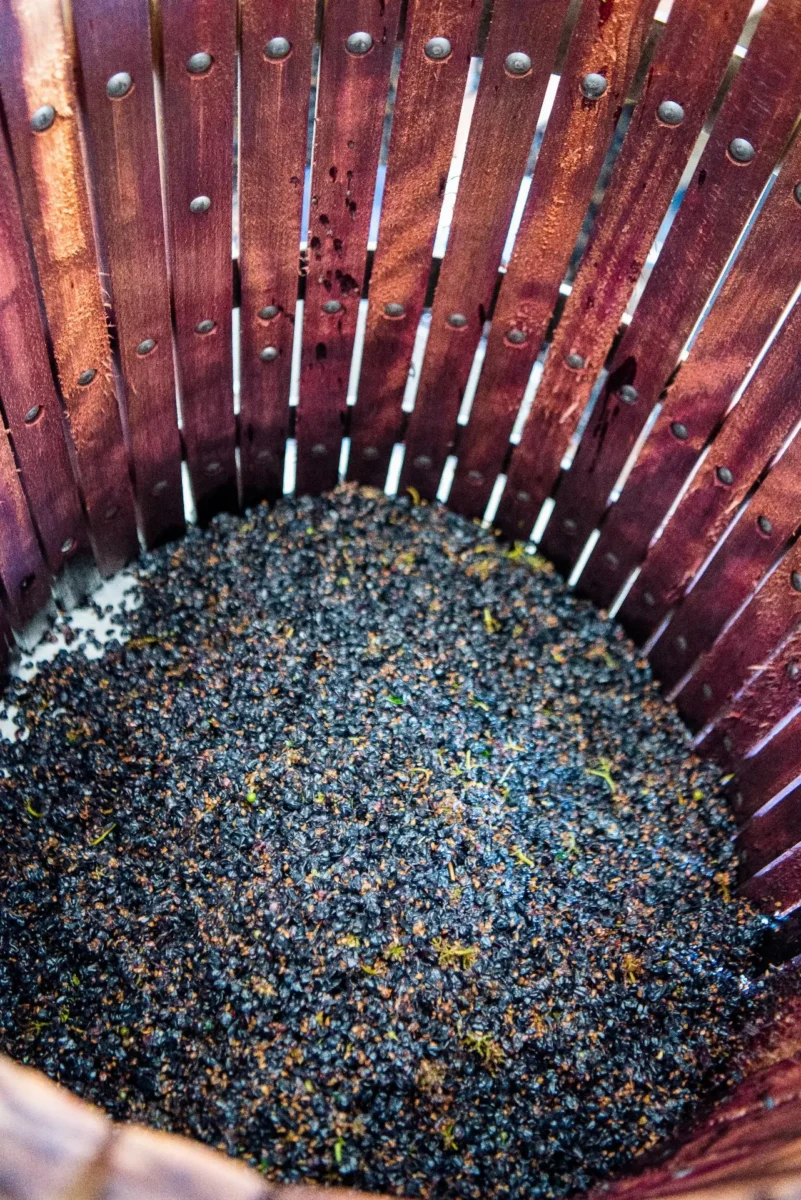Organic vineyard
“La Viña del Viento” is a plot of organic farming located at 800 meters above sea level, directly on the limestone slope of the northern face of La Sierra de Chimenea, with more than 1,350 meters above sea level, reminiscent of the Penibetic Mountain Range that is part of the Andalusian Limestone Arc. and the Antequera mountain range in its East-West axis, a natural geographical border that divides the provincial climate of Malaga between its Mediterranean slope of the Guadalhorce valley and its continentality in the Antequera depression.

From cold convective winters to arid continental summers whose temperatures are often attenuated during summer sunsets due to the existence of a unique climatic phenomenon in the province of Malaga, the Föehn effect that usually leaves clouds and orographic rains in “La Viña del Viento”.
The composition of the materials on which this vineyard is based are the exceptional white Mesozoic marine soils on a sandy loam bottom, the so-called hot soils, with good organic matter and low moisture retention. This unusual texture provides finesse and typicality to the wines subsequently obtained.
This combination of unusual conditions in the province of Malaga means that the grapes grown in this vineyard have a concentrated level of total polyphenols, ideal for obtaining single-varietal wines with high aging capacity.
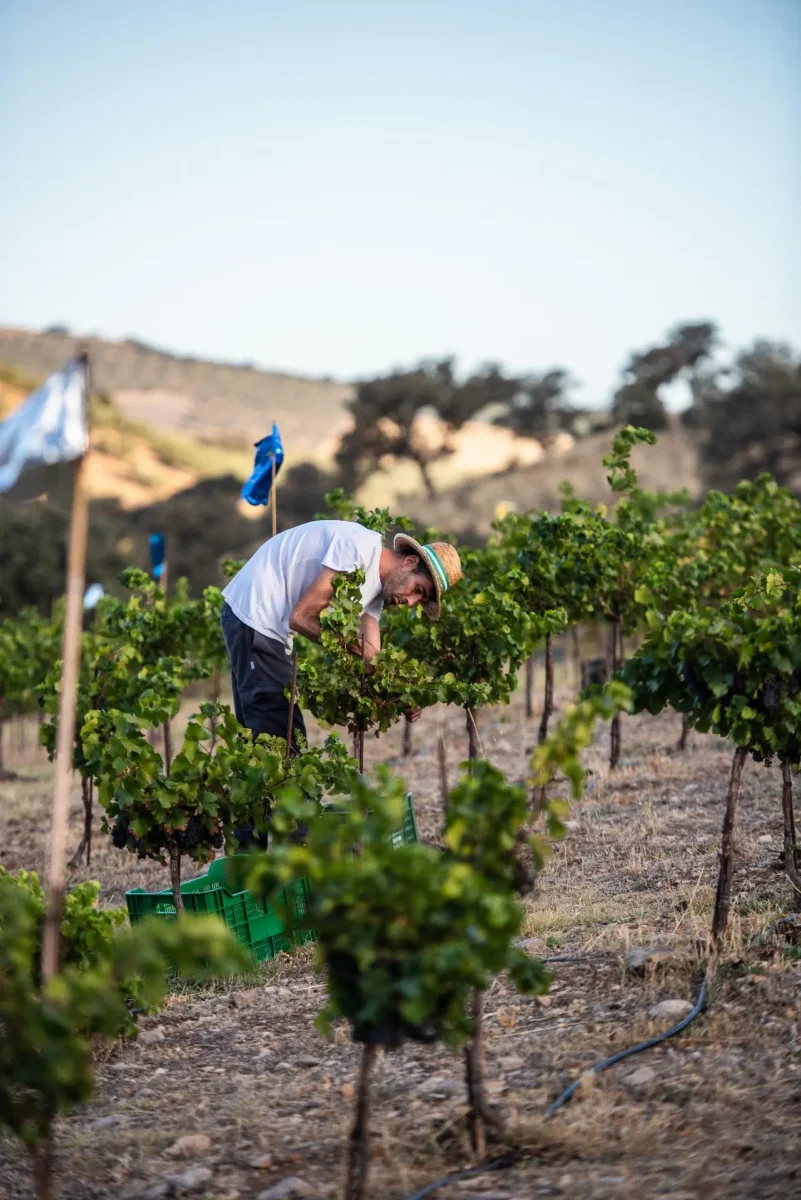
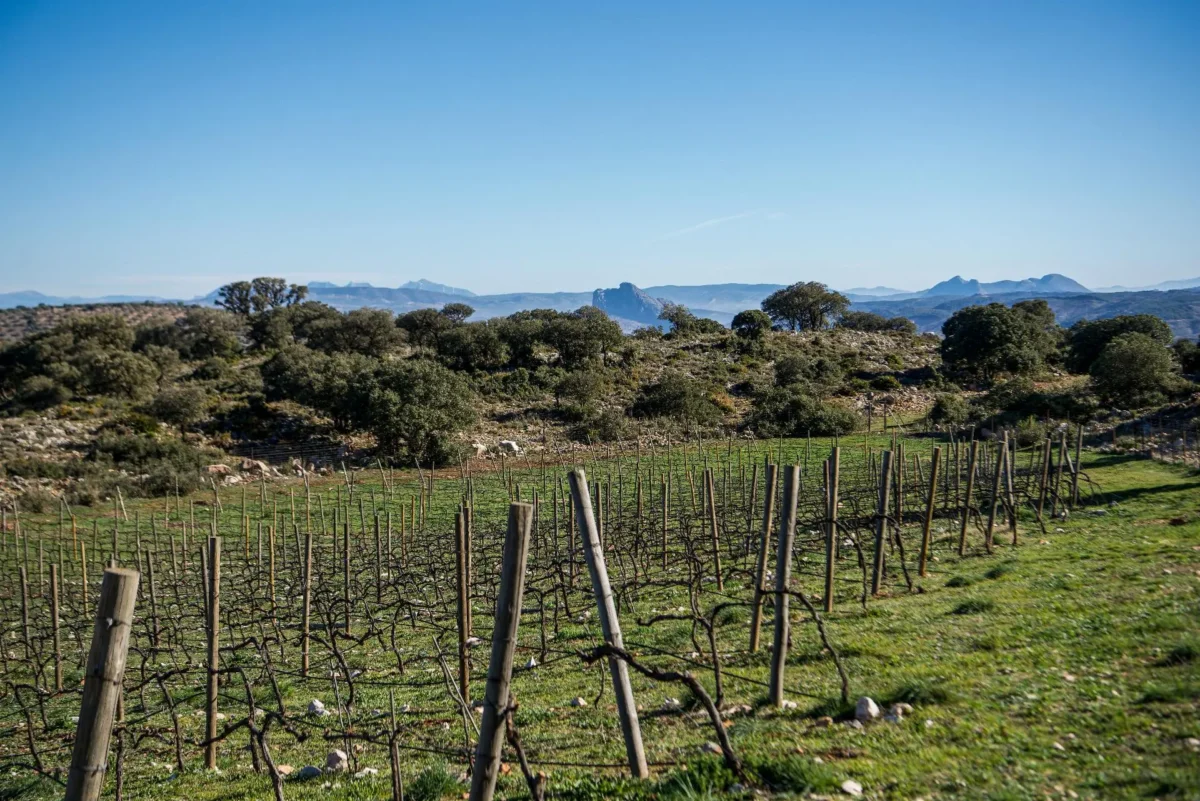
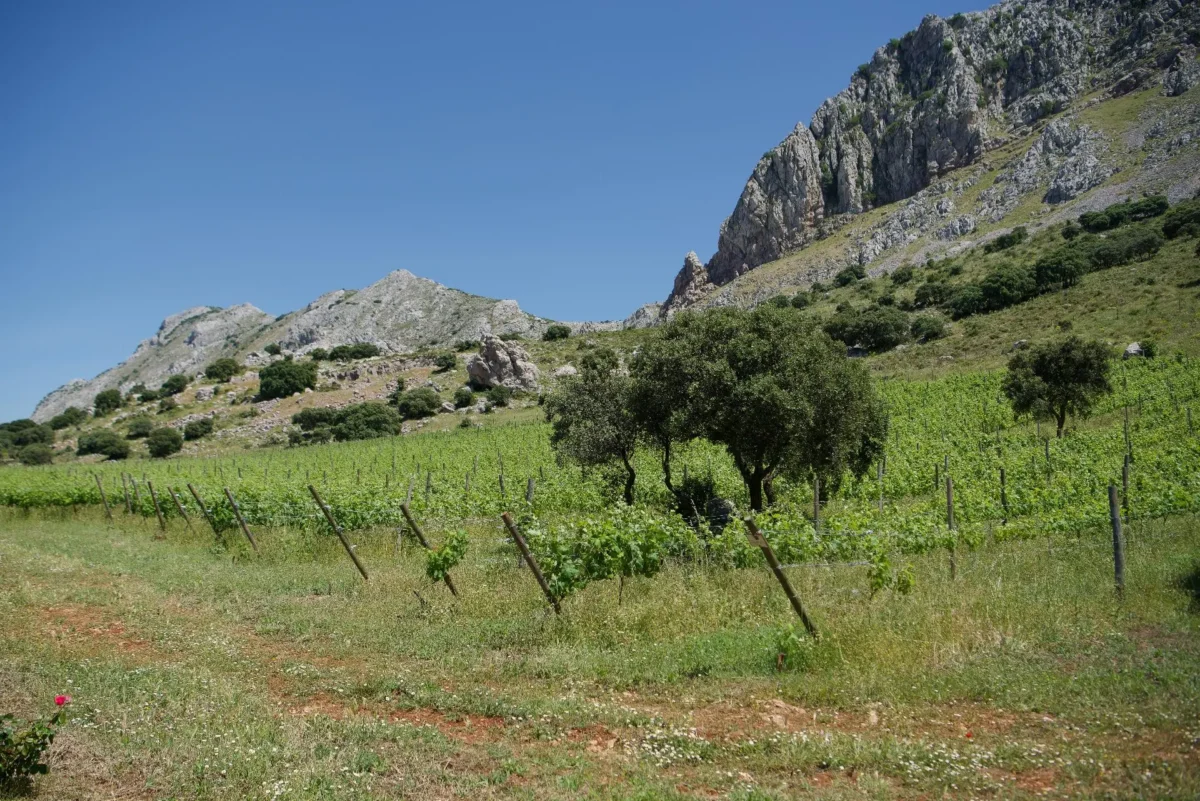
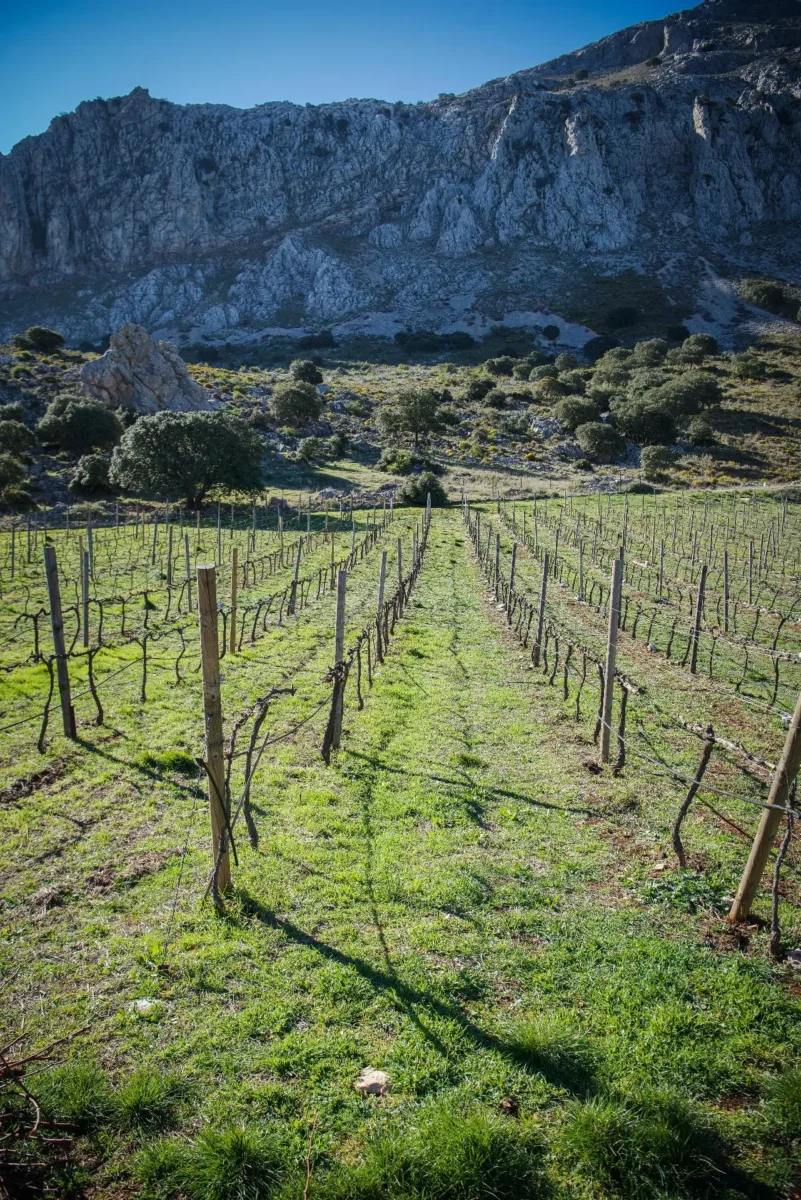
Located on what was probably an ancient Roman villa and a later Andalusian farmhouse, in which there were a series of frameworks and hydraulic networks for the management and transportation of water to the different areas of the region, facilities that are still in use today due to the existence of water sources coming directly from the natural aquifers of the Torcal de Antequera and that flourish in this area: El Nacimiento de la Villa.
The varieties of Red Grenache or Pinot Noir, among others, vegetate anchored in the soils of marine origin left behind by the ancient Sea that covered this area of the province of Malaga, the Tethys Sea. The different varieties grow at the end of a valley of gentle hills on soils with good organic matter and the presence of sand, silt and clay, the so-called cold soils whose compounds favor phenolic maturity, fatty sensations in the mouth of red wines and develop fresh and lively aromatic profiles for Rosé wines.
